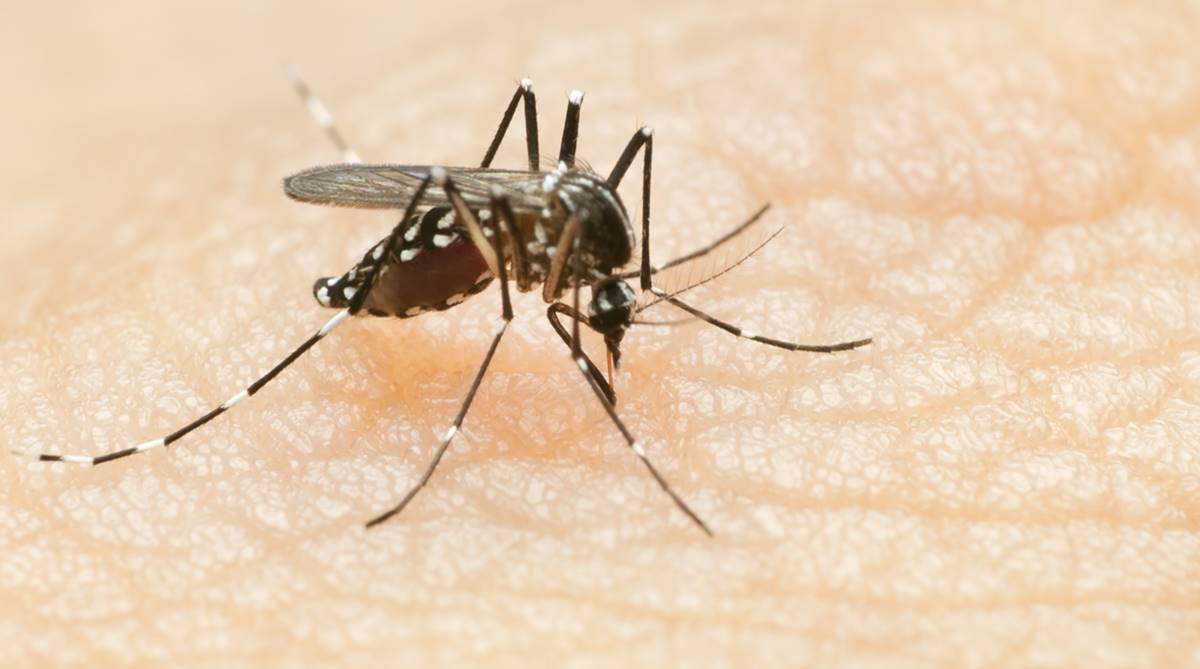J&K CM Omar Abdullah lays stress on Himachal Pradesh-type laws to protect agricultural land
The Chief Minister noted that Himachal Pradesh has adopted a strict policy in this regard and stressed the adoption of a similar policy in J&K.
These very hills of Himachal Pradesh were once known for their salubrious environment, clean air and water which attracted scores of ailing people to come and recover.

(Photo: Getty Images)
Both the much-feared diseases, dengue and swine flu, have started making their presence felt in a big way in Himachal Pradesh. Thousands of cases of dengue have been reported from different areas of the state (notably, Solan, Mandi, Hamirpur, Kangra) and hundreds of cases of swine flu continue to be reported daily from various parts of the state.
Many have succumbed to dengue which is disappearing now as winter has peaked, while 22 people have died till today as cases continue to pour in and are testing positive for the HINI virus. In January almost two cases a day were reported in a state with less than 75 lakh total population. Former Chief Minister Virbhadra Singh and present Speaker Rajeev Bindal were among VIPs who contracted swine flu.
Advertisement
These very hills of Himachal Pradesh were once known for their salubrious environment, clean air and water which attracted scores of ailing people to come and recover. Sanatoriums like the one at Kasauli surrounded by pine trees (with the helpful breeze that came through them) became famous. The reasons for the present degradation are not far to seek. In the last few decades these hill sides have become garbage dumps. Successive state governments make standard noises on occasions like Gandhi Jayanti (October 2) with profound statements and purely symbolic and superficial wielding brooms surrounded by TV cameras and press reporters. But no lasting and effective systemic plan has ever been worked out. Only the scare thrown up by the Surat plague (a few cases were also reported from Rohru, in upper Shimla) in the mid-1990s jolted the people and the government into a massive cleanliness drive.
Advertisement
There was no notable, sustainable drive against the garbage dumps, which along with stagnant water, is the natural breeding ground for mosquitoes and various diseases like jaundice, typhoid, etc. No wonder many homes now use mosquito nets and repellants unknown in these upper regions till recently.
Even mosquitoes have begun thriving in the new areas of Shimla, especially its outskirts. Apart from the peak winter time unsuitable for mosquitoes, they are spotted in all other seasons of the year. Many homes now use even the electrically charged “mosquito rackets”.
Apart from the litter and stagnant water that collects on the badly constructed roads, the tourist’s contribution is no less. They are notorious for utter insensitivity and uncaring attitude to the health of the local inhabitants. Mosquitoes have a joy ride in the luggage booths of tourists’ vehicles from outside and settle down in summer and other conducive seasons in the hills. Perhaps, over a period of time the larvae learn to cope with the fluctuating weather also.
Following Prime Minister Narendra Modi’s “Swachh Bharat” pronouncements, the Shimla municipal corporation declared (three days ago) the state capital “open defecation free” and “Swachh city”. It has also decided to fence the vulnerable “hot spots” and to punish the violators. It also decided to buy plastic material at Rs15 per kg from rag pickers “to make Shimla a clean city”. There is also talk of regularly cleaning public toilets and also managing and treating sewage material and ensure that it does not “leak” into the water bodies and supply lines. Barely two years ago, more than 3,000 cases of jaundice were reported (many died) from some areas of Shimla where the drainage water reportedly got mixed up with the water supply lines. A few officials were suspended!
All such measures sound grand and comforting on paper. But the ground realities do not seem to be convincing. Open defecation continues in the rural areas of the state and one sees people relieving themselves in the road sides. A parliamentary panel’s recent recommendation for a law to penalise those found spitting, urinating and throwing garbage in public places has to be viewed against this backdrop. The committee’s report to strengthen the cleanliness drive with legal backing is likely to face problems of enforcement on such a mass scale.
Handling Swine flu is however, a different game. People from the state visiting the plains for attending functions and mingling with the crowds often carry back the virus when they return home.
Similarly afflicted tourists and visitors to Himachal Pradesh are also said to be ignoring precautionary measures. The government does it routine bit by advertising in the media what people should do for prevention, etc. But the fact remains both dengue and swine flu have become the new threats to the people.
Advertisement